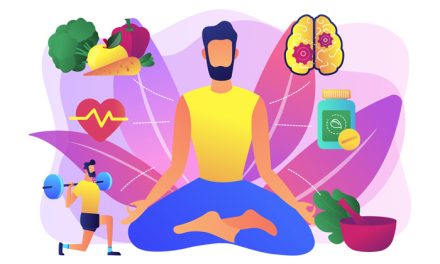From time to time, we all experience unpleasant emotions. We might feel sad or lonely or angry or bored or worried. All of those emotions—and many more besides—are perfectly natural and perfectly appropriate in any number of situations.
Generally speaking, when you are feeling one of those emotions, you probably have a pretty good sense of why. Maybe you are sad and lonely because a friend moved away. Maybe you are angry because someone at work missed an important deadline and kept you from moving forward on a project. Maybe you are bored because you have been doing a repetitive task like washing dishes or because you are stuck somewhere where you would rather not be. Maybe you are worried because you have a health concern or your child is having a tough time in school or your company might be laying people off soon.
Again, all of those situations and the emotions that accompany them are commonplace. As a rule, when the situation changes, the emotions you are feeling will change, too.
But what if you feel sad or lonely or angry or bored or worried pretty much all of the time—and for no real reason you can put your finger on? In a case like that, you may be experiencing the symptoms of a mental health disorder.
Mental health disorders can be a challenge for anyone, but for a person in recovery from a substance use disorder, they can also represent a danger to hard-won sobriety.
Let’s take a closer look at mental health disorders and how they can be tangled up with substance use disorders in a number of ways.
Symptoms of Mental Health Disorders
There are a range of symptoms that might indicate you are dealing with a mental health disorder, many of which mimic the kinds of emotions we mentioned above.
Ongoing feelings of sadness or of being disconnected from others or a lack of interest in things that you used to find enjoyable are symptoms of depression. An inability to stop worrying—even when you are not sure what you are worried about exactly—or being short-tempered can be symptoms of an anxiety or panic disorder.
The biggest clue that a mental health disorder rather than just a run-of-the-mill emotion might be in play is duration. If, for example, you feel sad and aimless for lengthy periods—say, two weeks or more—you should talk with a doctor or therapist.
The Connection Between Mental Health Disorders and Substance Use Disorders
Mental health issues and substance use disorders can have a kind of “chicken and egg” relationship to one another. That is to say, it is not always easy to determine which came first.
Maybe a person first starts using drugs or alcohol as a way to “self-medicate” when the symptoms of a mental health disorder start to intrude on daily life. Or maybe the development of a substance use disorder—which has serious impacts on your body and your brain—has led to the development or worsening of a mental health disorder. Either way, the two types of disorders are connected to one another.
The reverse is also true: sobriety and good mental health go hand in hand. That means that if you are in recovery from a substance use disorder, it is extremely important that you take care of your mental health. Doing so firms up the very foundations of your sobriety.
There are plenty of things you can do to improve your mental health; many of them are the same sorts of things you do to improve your physical health. Eating healthily, exercising regularly, and sleeping restfully are good for your overall well-being and your recovery.
That said, it is also important to get treatment for a mental health disorder so that it does not worsen or start to chip away at your resolve to stay sober. If you suspect you might be struggling with a mental health disorder, it is time to talk with your doctor or therapist.
We Can Help Restore Order No Matter the Disorder
At The Aviary Recovery Center—located near St. Louis, Missouri—we have the expertise, experience, and empathy to provide personalized treatment for substance use disorders and co-occurring mental health disorders. Our approach to residential treatment and rehabilitation includes both individual and group therapy sessions during which improving your mental health is a high priority.
The connection between good mental health and ongoing sobriety cannot be overstated, and that is why we employ evidence-based practices to help each person we serve in both areas. If you are struggling with drugs or alcohol—with or without a co-occurring mental health challenge—we can help you reclaim your life.










